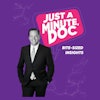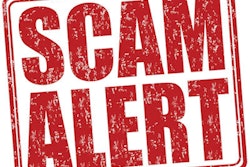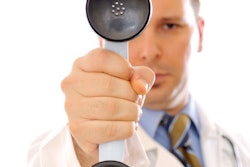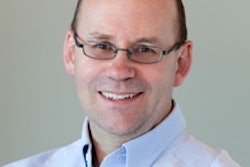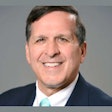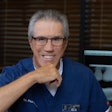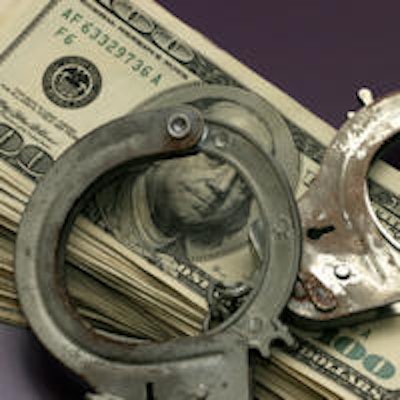
In a new three-part series, Michael W. Davis, DDS, details some of the ways dentists and dental offices are vulnerable to scams. This first part will introduce the series and discuss embezzlement and scams that are played on vulnerable employee dentists.
Dentists are played as marks for scams for several reasons. First, we are targeted because our earning potential is much higher than the general population. Traditionally, dentists have often operated in an isolationist bubble and often confer with colleagues on nonclinical matters only in unusual situations. The demanding focuses of the technical aspects of our profession often preclude us from closer examination of what may be obvious to others. We have blind spots. We are vulnerable.
Recently, courageous leaders in the dental profession such as Drs. Gordon and Rella Christensen have openly discussed embezzlement actions against them. These disclosures help dissolve any shame or guilt that other doctors/victims may carry. No one enjoys admitting they were scammed. However, open disclosures by victims help erode the smokescreen, which perpetrators depend on to pull off their scams.
Embezzlement
Embezzlement and employee theft against an owner/doctor can take many forms. The ADA estimates about a third of all dental offices will be or have been victims of embezzlement. Experts in systems management to prevent and investigate dental office embezzlement and fraud say estimates are greater than 50%. Regardless of the exact number, these risks are very real and potentially devastating to a dental practice.
The exact method of the scam can take on enough discussion to fill several volumes of books. In a common method, the office manager, who is generally valued and trusted beyond reason, pockets office receipts. These may be cash payments from patients that the office manager writes off.
 Michael W. Davis, DDS.
Michael W. Davis, DDS.A dishonest office manager may go to the extent of establishing a separate dental clinic bank account, which he or she has the power of personal signature control. Patient or insurance checks may be deposited into this account, the patient statement written off, and the crooked staff member absconds with the money. These scams are usually played out over a period of many months and often years.
Most of these forms of embezzlement go unreported. Some doctors are too embarrassed to report the criminal activity to authorities. Others are themselves involved in dishonest activities, such as misrepresentations on insurance claim filings, extramarital affairs, nondisclosed earned income to tax authorities, and so on. Embezzlers use this information against the doctor to help cover their tracks when their scam is uncovered.
Also common is for staff members to steal office supplies, including prescription pads to obtain U.S. Drug Enforcement Administration (DEA) schedule II narcotics. After-hours abuse of nitrous oxide may be in play. In fact, there are a number of cases of staff operating the dental clinic after hours, without any dentist supervision or authorization. The dishonest staff provides dental services at a discounted fee and primarily operates on a cash-only or trade basis.
What can be done? I don't care how intelligent you are or how many letters follow your name. These crooks are highly clever. They have great focus and motivation. Please believe me, you most likely will be the target for a scam -- or already have been and may not realize it -- and probably on several occasions.
Not only do dental office embezzlers take hard-earned money, but they also like to hide their crimes if close to discovery. This has meant perpetrators have destroyed hard drive office computer records. Others have committed arson to cover their tracks.
Prevention is the key. The owner needs accounting redundancies and safeguards. No one is above potential suspicion, including spouses. A good dental accounting firm can help establish these mechanisms. Well-respected forensic dental accounting firms can be retained to audit bookkeeping records. Yes, a small upfront fee for prevention is needed and also ongoing fees for expert accounting work. This is a paltry sum compared with the very real downside possibilities.
Scams on employee dentists
Probably the most common hustle by an employer is the misrepresentation of a doctor with "independent contractor" status, when the doctor should be lawfully listed as an"employee" under Internal Revenue Service (IRS) guidelines. This is a means to dodge the employer's tax obligation under the Federal Insurance Contributions Act (FICA). This is also a common tax dodge to cheat employee hygienists.
Usually, the dental clinic employer has the doctor (or hygienist) sign a contract that designates that the employee assumes the status of independent contractor. Since most doctors (especially junior colleagues) aren't savvy to legal matters, they don't realize this contract stipulation may invalidate the contract (in total or severable, depending on state statutes), because the sections relating to independent contractor status are usually unlawful. The contract becomes in part, or in toto, void and unenforceable.
A number of disreputable employers use employment contracts that are highly cryptic. The methods of remuneration for clinical production are incomprehensible. Any restrictive covenants on employment termination are opaque. Methods for establishing bonuses or quotas (generally unlawful when formulated or enforced by a nondentist) are vague.
Fortunately, the ADA offers a free service to members in which their legal staff will translate an employment contract from "legalese" into plain English. The potential employee doctor may quickly discover if this is a valid employer. Some are and some aren't.
Dishonest employers will promise their employee dentists many things verbally but not back it up. This may include selection of specific supplies and equipment to best serve the needs of patients. It may include dental laboratory selection. It may include inadequate and improperly trained auxiliaries. It may include office managers and/or hygienists who assume duties only lawfully assigned to duly licensed doctors.
A fraudulent dental clinic may use the dental license name and numbers of a single employed dentist, and use that data for filing insurance and Medicaid claims for other doctors and staff unlawfully providing patient services. It's actually common for a patient service to be billed on a given day on a service provided by a specific doctor who wasn't working that day. In the event of a government or insurance company audit, the employer will often strong-arm the employee to assist in the cover-up or risk being made the lead violator.
A foreign national, who has graduated from an ADA-accredited dental program, by state dental practice acts usually can't obtain a dental license without an employer sponsor. These bright and well-trained junior professionals are often at the mercy of disreputable clinic employers. Through threats of revocation of their green cards, these doctors may be plied with disturbing manipulation relating to ethics of patient care.
Dishonest dental clinic employers span from smaller, single-location facilities to large corporate interstate operations run by private equity investment firms. Exposure, regulation, and enforcement are the keys. Unfortunately, most state dental boards have a proven aversion to regulation of corporate dentistry. They generally provide a questionable job with regulation of even individual dentists. Too few prosecutors see "rich" doctors as victims and discount their common $200,000 to $400,000 in student debt load.
The next article in this series will cover practice management consultants and dental practice brokers.
Michael W. Davis, DDS, maintains a private general dental practice in Santa Fe, NM. He serves as chairperson for the Santa Fe District Dental Society Peer Review. He is also active in expert witness legal services.
The comments and observations expressed herein do not necessarily reflect the opinions of DrBicuspid.com, nor should they be construed as an endorsement or admonishment of any particular idea, vendor, or organization.

